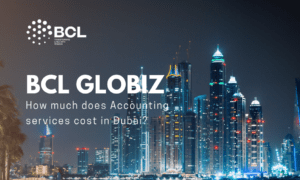Introduction:
In the rapidly evolving landscape of modern business, staying ahead of the curve is crucial. For tech-savvy businesses, the integration of cloud accounting solutions has emerged as a game-changer, revolutionizing financial management practices. This innovative approach not only enhances efficiency but also provides a competitive edge in an increasingly digitalized world.
The Evolution of Accounting:
Traditionally, businesses relied on cumbersome and time-consuming manual accounting processes. However, the advent of technology ushered in a new era, leading to the development of cloud accounting solutions. These solutions leverage the power of the cloud to streamline financial management, offering real-time insights and fostering collaboration among teams.
Key Features of Cloud Accounting Solutions:
Accessibility and Flexibility:
One of the primary advantages of cloud accounting solutions is the flexibility they offer. With data stored securely in the cloud, businesses can access financial information anytime, anywhere. This level of accessibility empowers teams to make informed decisions promptly, promoting agility and responsiveness.
Real-Time Data Updates:
Unlike traditional accounting methods that involve delays in updating financial records, cloud accounting solutions provide real-time data updates. This ensures that businesses have accurate and up-to-date information at their fingertips, enabling quick and informed decision-making.
Cost-Efficiency:
Cloud accounting solutions eliminate the need for expensive hardware and constant software updates. Businesses can opt for a subscription-based model, paying only for the services they use. This cost-efficient approach allows companies to allocate resources more strategically, driving overall financial sustainability.
Enhanced Security Measures:
Concerns about data security are prevalent in the digital age. Cloud accounting solutions prioritize robust security measures, including encryption and multi-factor authentication, to safeguard sensitive financial information. This commitment to security reassures businesses that their data is protected from unauthorized access and cyber threats.
Seamless Integration with Other Software:
Tech-savvy businesses often utilize a suite of software applications to manage various aspects of their operations. Cloud accounting solutions seamlessly integrate with other software, such as customer relationship management (CRM) and enterprise resource planning (ERP) systems, creating a cohesive ecosystem that enhances overall efficiency.
Benefits for Tech-Savvy Businesses:
Time Savings:
The automation capabilities of cloud accounting solutions significantly reduce manual data entry and repetitive tasks. This time-saving aspect allows finance teams to focus on more strategic activities, such as financial analysis and forecasting, contributing to the overall growth of the business.
Improved Collaboration:
Cloud accounting solutions facilitate collaboration among team members, regardless of their physical location. With real-time access to shared financial data, collaboration becomes seamless, leading to enhanced communication and teamwork within the organization.
Scalability:
Tech-savvy businesses often experience rapid growth, and their financial management systems must adapt accordingly. Cloud accounting solutions offer scalability, allowing businesses to easily adjust their usage and storage needs as they expand, without the need for significant IT infrastructure investments.
Enhanced Reporting and Analytics:
Cloud accounting solutions provide robust reporting and analytics tools, offering valuable insights into financial performance. Tech-savvy businesses can leverage these features to make data-driven decisions, identify trends, and anticipate future financial challenges.
Implementation Strategies:
Training and Onboarding:
Successfully implementing cloud accounting solutions requires proper training and onboarding for team members. Investing in comprehensive training programs ensures that employees can maximize the potential of these tools, fostering a smooth transition to the new financial management system.
Data Migration:
Migrating financial data to the cloud requires careful planning and execution. Businesses should collaborate with experienced professionals to ensure a secure and seamless transfer of data, minimizing the risk of errors or data loss during the transition.
Continuous Evaluation and Optimization:
Cloud accounting solutions are dynamic, with regular updates and new features being introduced. Tech-savvy businesses should establish a culture of continuous evaluation and optimization, staying abreast of new developments to make the most of the evolving capabilities of their financial management tools.
Conclusion:
Cloud accounting solutions have become indispensable for tech-savvy businesses aiming to streamline their financial management processes. The accessibility, real-time updates, cost-efficiency, and enhanced security measures offered by these solutions position them as a cornerstone for success in the digital era. By embracing cloud accounting, businesses can not only enhance their efficiency but also gain a competitive edge, propelling them toward sustained growth and prosperity in an ever-evolving business landscape.



































